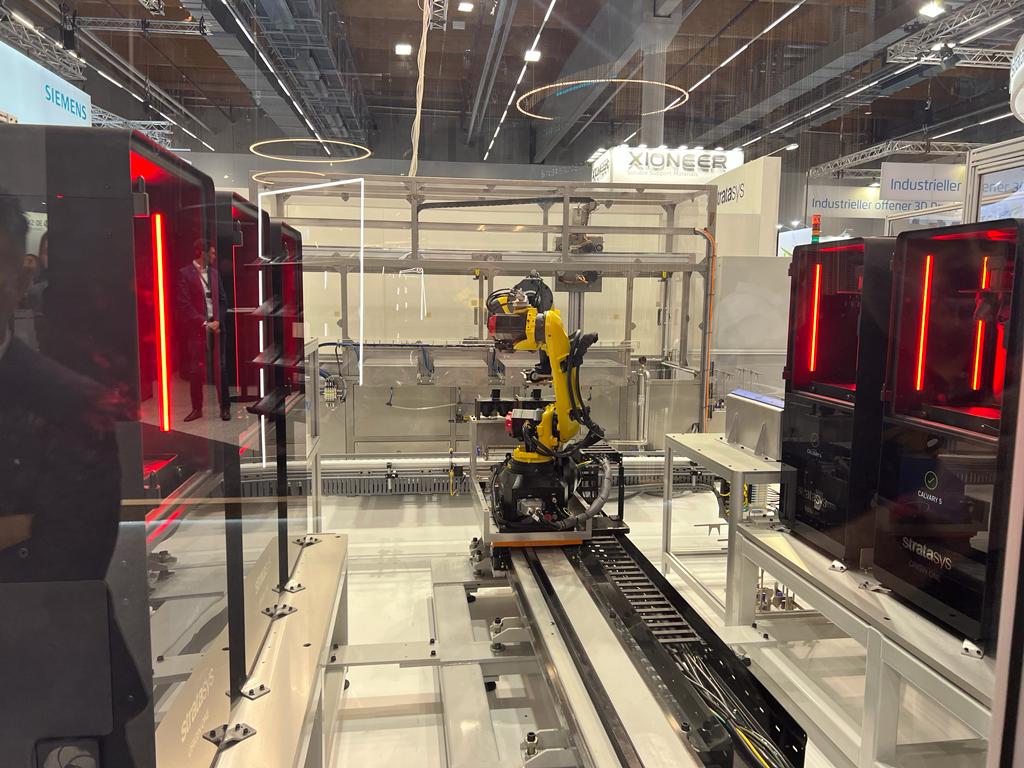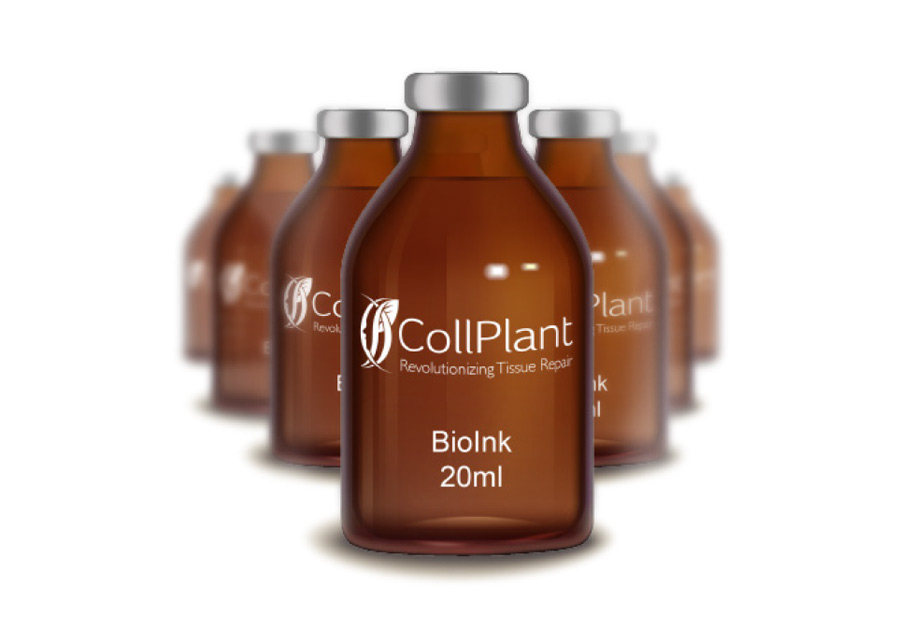Stratasys and CollPlant have announced plans to “transform healthcare with industrial scale bioprinting of tissues and organs.” To establish a method for bio-fabricating human tissues and organs utilizing CollPlant Biotechnologies’ rh-Collagen-based bioinks and Stratasys Ltd’s P3 technology-based bioprinter, the two companies have signed a cooperative development and commercialization agreement. The first project focuses on making a solution for CollPlant’s program for regenerative breast implants that can be used on an industrial scale.
Innovative technologies and solutions based on CollPlant’s plant-based collagen are being developed for tissue regeneration and organ production. CollPlant is a pioneering regenerative and aesthetic medicine firm.
The new bioprinter will make it possible to make CollPlant’s cutting-edge breast implants. These implants are being made so that a person’s natural breast tissue can grow back without triggering an immune response. This could be a game-changing option for both cosmetic and reconstructive surgery. The bioprinter is based on Stratasys’ precise P3 3D printing technology in combination with CollPlant’s flagship bioinks.

A $2.6 Billion Market Opportunity
CollPlant is working on cutting-edge breast implants that will help a person’s natural breast tissue grow back without triggering an immune response. Based on Stratasys’ precise P3 3D printing technology and CollPlant’s flagship bioinks, the new bioprinter will be used to make these implants. This could represent a ground-breaking alternative for both aesthetic and reconstructive procedures.
Breast augmentation and reconstruction treatments rank second among all cosmetic surgery procedures now performed globally, with a market value of $2.6 billion. Most breast augmentation and reconstruction surgeries are done with synthetic silicone breast implants, an artificial replacement for naturally regenerating tissue that can cause problems.
According to the agreement, both businesses will cross-promote each other’s bioprinting goods. Customers can purchase Stratasys’ bioprinter along with CollPlant’s bioinks, and vice versa for CollPlant’s customers and business partners.
Customers can purchase Stratasys’ bioprinter along with CollPlant’s bioinks; likewise, Stratasys’ bioprinter will be made available to CollPlant’s clients and business partners.

According to Stratasys CEO Dr. Yoav Zeif, “through this partnership with CollPlant, we have an important opportunity to transform healthcare with bioprinting in order to improve the lives of patients undergoing breast augmentation or reconstruction procedures.” The production scale and precision 3D printing capabilities of Stratasys’ P3 Programmable Photopolymerization technology are particularly well suited for bioprinting applications, and this agreement is in line with the company’s strategy to deliver complete solutions for high-growth industry applications with its ecosystem of partners. “We believe that partnering with CollPlant will enable us to accelerate the industrialization of bioprinting for regenerative medicine, and we look forward to collaborating towards the successful commercialization of CollPlant’s novel regenerative breast implants and beyond,” added Zeif.
Stratasys is a leader in additive manufacturing, and Yehiel Tal, CEO of CollPlant, is excited to work with them on this project that will change the game. “P3 technology allows printing with high resolution and process control, and we believe that the combined, pioneering technologies of both companies will streamline the development and production process so that we have the most efficient means to produce our regenerative breast implants and other potential tissues and organs. We believe that our rhCollagen-based regenerative implant has the potential to overcome the challenges of existing breast procedures that use silicone implants or autologous fat tissue transfer,” said the CollPlant CEO.
CollPlant declared in January 2023 that it had successfully completed large-animal research for its 3D bioprinted regenerative breast implants. After three months, the preclinical investigation showed increasing phases of tissue regeneration, as evidenced by the development of connective tissue and neovascular networks within the implants, all without any adverse effects being observed. Based on these promising findings, CollPlant intends to launch large-animal follow-up research in the second half of 2023, employing implants of commercial size to aid in upcoming human investigations and product commercialization.
What does the future of 3D printing hold?
What engineering challenges need to be tackled in the additive manufacturing sector?
To stay up to date with the latest 3D printing news, don’t forget to subscribe to the 3D Printing Industry newsletter or follow us on Twitter, or like our page on Facebook.
While you’re here, why not subscribe to our Youtube channel? Featuring discussion, debriefs, video shorts, and webinar replays. Are you looking for a job in the additive manufacturing industry? Visit 3D Printing Jobs for a selection of roles in the industry.
Featured image shows CollPlant scientists. Photo via CollPlant.



